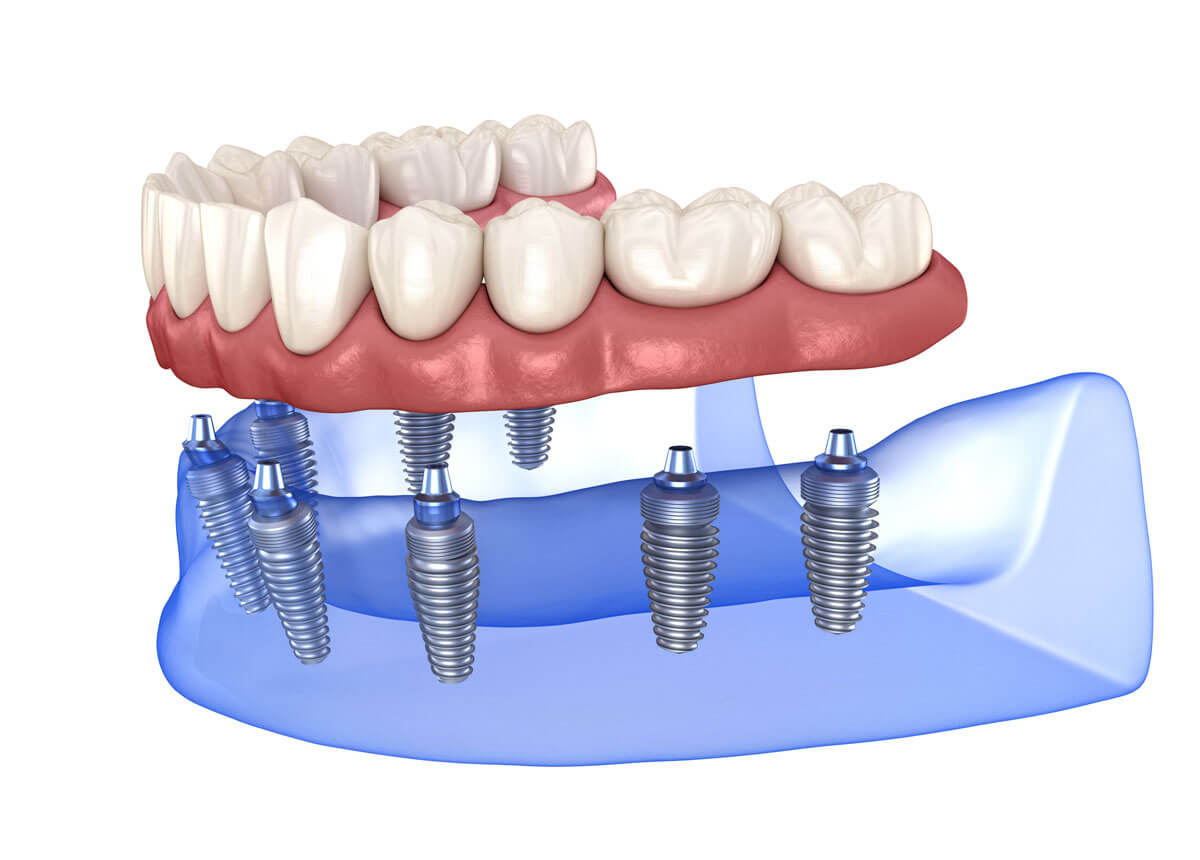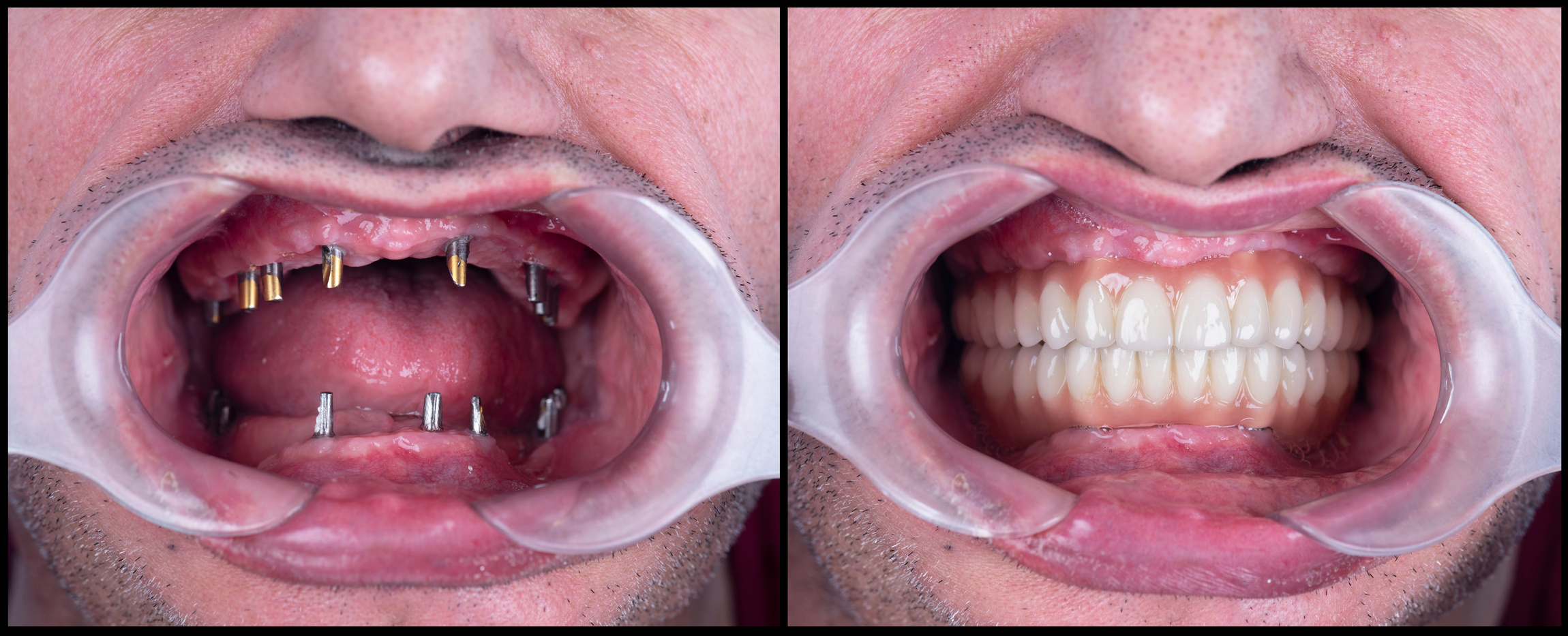Some Known Factual Statements About Dental Sense
Some Known Factual Statements About Dental Sense
Blog Article
The Basic Principles Of Dental Sense
Table of ContentsA Biased View of Dental SenseLittle Known Questions About Dental Sense.What Does Dental Sense Mean?About Dental Sense
are clinical tools operatively dental implanted into the jaw to restore an individual's capability to eat or their look. They supply assistance for artificial (phony) teeth, such as crowns, bridges, or dentures. When a tooth is lost because of injury or disease, a person can experience complications such as quick bone loss, faulty speech, or modifications to eating patterns that cause pain.Dental dental implant systems contain a dental implant body and oral implant joint and may likewise include an abutment addiction screw. Root canal procedure. The oral implant body is surgically inserted in the jawbone instead of the tooth's origin. The oral implant joint is typically connected to the implant body by the abutment fixation screw and prolongs via gum tissues right into the mouth to sustain the affixed man-made teeth
(https://www.openlearning.com/u/matthewmusic-spvoez/about/)Structure of The Dental Implant System selecting oral implants, talk with your dental service provider about the potential benefits and dangers, and whether you are a prospect for the procedure. Things to think about: Your total wellness is an important element in determining whether you are an excellent prospect for dental implants, just how long it will require to recover, and exactly how long the implant may remain in location.
Smoking cigarettes may affect the healing process and lower the lasting success of the dental implant. The healing procedure for the dental implant body might take several months or longer, throughout which time you usually have a momentary joint instead of the tooth. the dental implant treatment: Thoroughly follow the oral hygiene directions given to you by your dental provider.
Little Known Facts About Dental Sense.
Implant failure can result in the requirement for another medical procedure to repair or replace the dental implant system. Recovers the ability to eat Brings back cosmetic look Aids keep the jawbone from diminishing as a result of bone loss Protects the wellness of the surrounding bone and gum tissues Assists maintain adjacent (close-by) teeth steady Improves top quality of life Damage to surrounding all-natural teeth throughout implant placement Injury to the surrounding cells during surgical treatment, such as sinus perforation Injury throughout surgical procedure (for example, fracture of surrounding jawbone) Inadequate feature, such as seeming like the teeth do not bite with each other generally A sensation that the tooth hangs or twisting in place arising from an abutment screw loosening up Implant body failing (looseness of the implant body) as a result of systemic infection, which might be most likely in people with unrestrained diabetics issues due to neighborhood infection in bone and gums sustaining the dental implant body because of postponed healing, which may be more probable in individuals that smoke Problem cleansing the periodontals around the dental implant, leading to poor dental health Unattended periodontal illness Post-surgical pins and needles due to nerve impingement or damages Constantly alert healthcare suppliers and imaging specialists that you have dental implants prior to any kind of magnetic vibration imaging (MRI) or x-ray treatments.
FDA is not conscious of any type of damaging events reported for MRI or x-ray treatments with oral implants. Dental implants systems are typically made of products that follow worldwide agreement standards of the International Organization for Standardization (ISO) or ASTM International. These standards have information of what makes a safe material.

A dental implant is a structure that changes a missing tooth. With screw-like tools, the surgeon inserts a dental implant right into the jawbone, and it acts as a support for a synthetic tooth, called a crown.
An Unbiased View of Dental Sense
Some individuals are not qualified for dental implant surgical procedure. It is for dental doctors her comment is here to operate on individuals with: severe illnessuncontrollable metabolic diseasebone or soft cells condition or infectionIf these problems are resolved, a person can have the surgery. In, oral specialists avoid running on individuals with: If individuals with any one of the above go through oral implant surgical procedure, there is a higher risk of the dental implant stopping working.

Oral implant surgical procedure is an individualized process. It's not the same for everyone. The adhering to offers a general overview of what you can expect your dental expert, dental surgeon, periodontist or prosthodontist to do: Place the implant surgically. Offer you time to heal. Affix the blog post and final crown, bridge or denture.
Next, your specialist will very carefully place the oral implant right into your jaw. If your dental implant is near the front of your mouth, your dental expert will make a short-term tooth for you to put on till you recover.
About Dental Sense
Throughout the healing stage, your jawbone should fuse to the dental implant. This process can take anywhere from 3 to 9 months.
When your implant heals, your dental expert can connect the abutment (little adapter blog post) and your last reconstruction (crown, bridge or denture). This typically takes about one hour to complete and might require a second small surgical procedure. You should not feel any discomfort throughout your oral implant treatment since your provider will certainly utilize medication to numb your gums.
Report this page